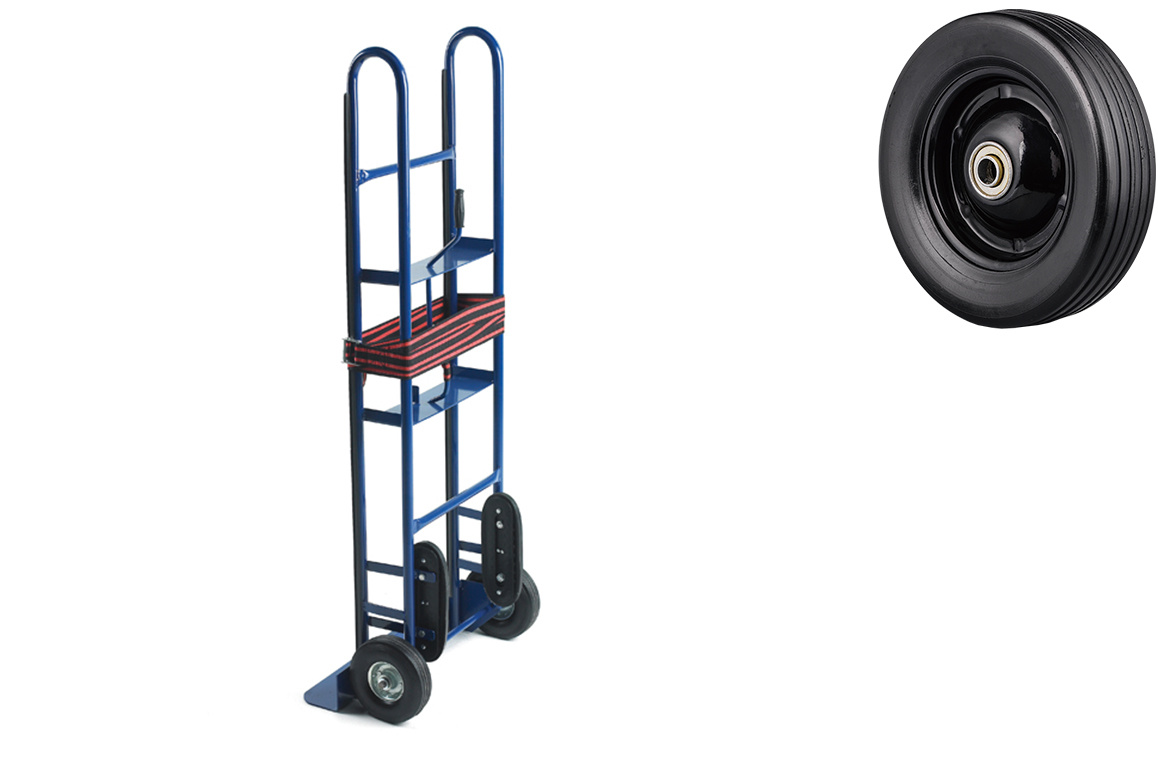News
The Importance of 320mm Rubber Wheels in the Automotive Industry
Release time:
2025-01-04 09:20
In the automotive and parts sector, particularly within the driving systems category, the choice of wheels can significantly influence performance, safety, and efficiency. Among the various wheel options available, 320mm rubber wheels stand out due to their unique characteristics and benefits. These wheels are commonly used in a range of vehicles, from motorcycles to industrial machinery, providin
In the automotive and parts sector, particularly within the driving systems category, the choice of wheels can significantly influence performance, safety, and efficiency. Among the various wheel options available, 320mm rubber wheels stand out due to their unique characteristics and benefits. These wheels are commonly used in a range of vehicles, from motorcycles to industrial machinery, providing essential functionality in a variety of applications.
One of the primary advantages of 320mm rubber wheels is their superior grip and traction. The rubber material offers excellent friction against various surfaces, enhancing vehicle control and stability during operation. This is particularly important for vehicles that operate in diverse environments or those that require precise maneuverability. The 320mm diameter strikes a balance between compactness and performance, allowing for effective handling while maintaining a smooth ride.
Another benefit of 320mm rubber wheels is their shock absorption capabilities. The elasticity of rubber helps to dampen vibrations and impacts, leading to a more comfortable ride for both the driver and passengers. This feature is particularly valuable in off-road or rough terrain situations, where the vehicle is subjected to various shocks and jolts. Additionally, the use of rubber wheels can contribute to reduced wear and tear on other vehicle components, resulting in lower maintenance costs over time.
When selecting 320mm rubber wheels, it is essential to consider factors such as load capacity, tread design, and environmental conditions. Different tread patterns can significantly influence performance, with some designs optimized for wet or slippery conditions while others are tailored for dry surfaces. Understanding the specific requirements of your vehicle and its intended use will help you choose the most suitable wheel configuration.
Moreover, the durability of rubber wheels should not be overlooked. High-quality rubber compounds can withstand harsh conditions, including extreme temperatures and abrasive surfaces, extending the lifespan of the wheels. It's crucial to select wheels made from reliable materials that meet industry standards to ensure they can withstand the challenges of daily operations effectively.
In conclusion, 320mm rubber wheels are a vital component in the automotive industry, offering a combination of grip, comfort, and durability. Their diverse applications make them suitable for various vehicles, enhancing performance across different driving scenarios. By understanding the features and benefits of these wheels, automotive professionals can make informed decisions that optimize vehicle functionality and safety. Whether you are involved in manufacturing, maintenance, or vehicle design, considering the right wheels can make a significant difference in overall performance and efficiency.
One of the primary advantages of 320mm rubber wheels is their superior grip and traction. The rubber material offers excellent friction against various surfaces, enhancing vehicle control and stability during operation. This is particularly important for vehicles that operate in diverse environments or those that require precise maneuverability. The 320mm diameter strikes a balance between compactness and performance, allowing for effective handling while maintaining a smooth ride.
Another benefit of 320mm rubber wheels is their shock absorption capabilities. The elasticity of rubber helps to dampen vibrations and impacts, leading to a more comfortable ride for both the driver and passengers. This feature is particularly valuable in off-road or rough terrain situations, where the vehicle is subjected to various shocks and jolts. Additionally, the use of rubber wheels can contribute to reduced wear and tear on other vehicle components, resulting in lower maintenance costs over time.
When selecting 320mm rubber wheels, it is essential to consider factors such as load capacity, tread design, and environmental conditions. Different tread patterns can significantly influence performance, with some designs optimized for wet or slippery conditions while others are tailored for dry surfaces. Understanding the specific requirements of your vehicle and its intended use will help you choose the most suitable wheel configuration.
Moreover, the durability of rubber wheels should not be overlooked. High-quality rubber compounds can withstand harsh conditions, including extreme temperatures and abrasive surfaces, extending the lifespan of the wheels. It's crucial to select wheels made from reliable materials that meet industry standards to ensure they can withstand the challenges of daily operations effectively.
In conclusion, 320mm rubber wheels are a vital component in the automotive industry, offering a combination of grip, comfort, and durability. Their diverse applications make them suitable for various vehicles, enhancing performance across different driving scenarios. By understanding the features and benefits of these wheels, automotive professionals can make informed decisions that optimize vehicle functionality and safety. Whether you are involved in manufacturing, maintenance, or vehicle design, considering the right wheels can make a significant difference in overall performance and efficiency.
320mm rubber wheels
Previous Page



